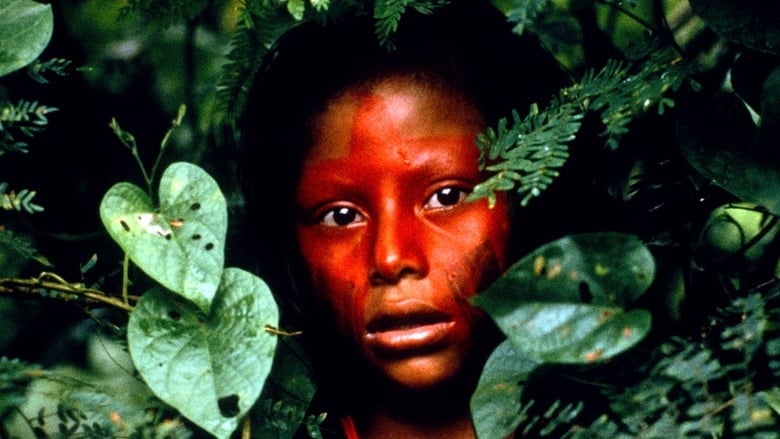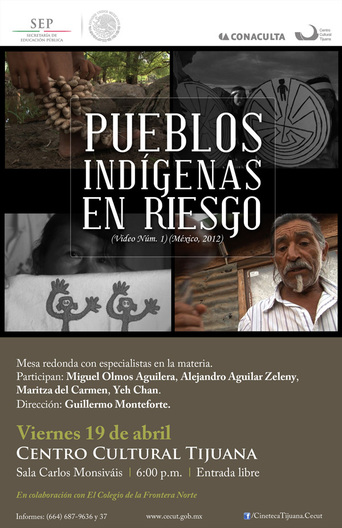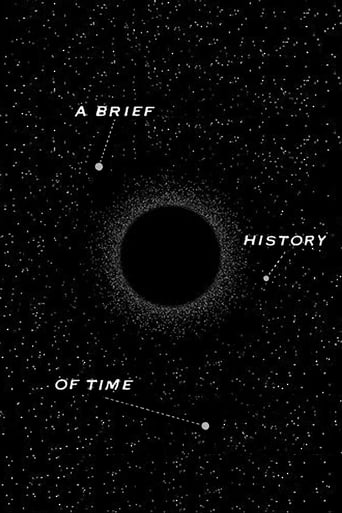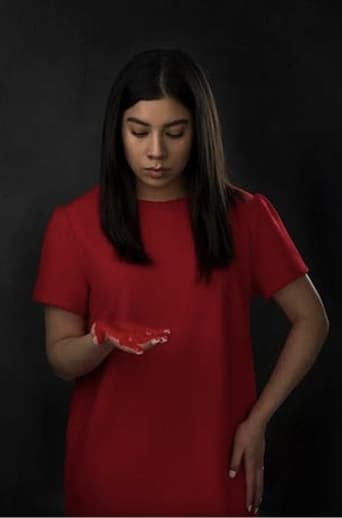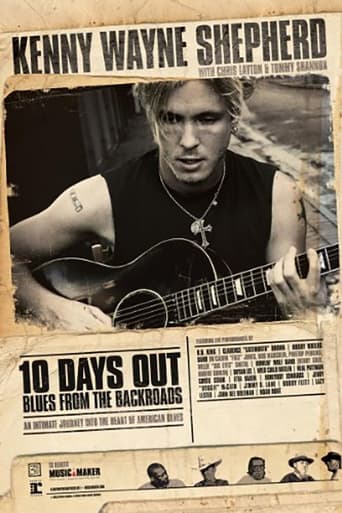Baraka (1993)
A paralysingly beautiful documentary with a global vision—an odyssey through landscape and time—that attempts to capture the essence of life.
Watch Trailer
Cast
Similar titles
Reviews
Fresh and Exciting
best movie i've ever seen.
Yo, there's no way for me to review this film without saying, take your *insert ethnicity + "ass" here* to see this film,like now. You have to see it in order to know what you're really messing with.
This story has more twists and turns than a second-rate soap opera.
If you are at all familiar with the 1983 film Koyaanisqatsi, then you'll be sure to find that Baraka (whose title translates into "essence of life") runs along similar lines of having no actors, no dialogue, just a constant procession of very vivid images that all (even in a roundabout way) relate to specific, recurring themes. (This time around one of Baraka's main themes is that of various world religions) After calmly sitting through Baraka's 95 minutes of startling camera-work, striking images (from 23 countries), and meditative, ambiance music, I am now quite convinced that this world we live in is, indeed, mad, mad, mad, mad, mad.And, sure enough, religion (this includes all sects) is, in one way or another, the very thing that is at the root of all this mass madness. If you ask me, the only unity and "oneness" that religion creates is that of the profoundly insane.Anyways - I found it somewhat unfortunate that out of the 23 countries visited in this DVD, Canada was one of the nations that was noticeably excluded from said production.
BARAKA is a 1993 film, shot by Ron Fricke in some 24 countries, that is a sort of documentary on three universal themes: 1) the grandeur of the natural world, from the peaks of Everest to low deserts, 2) the oneness of the human race illustrated by juxtaposing almost identical shots from vastly separated cultures, and 3) the desire for a connection with something transcendent. Shot in 70mm film, watching the Bluray on a projector or a large-screen television offers one of the most visually stunning cinematic experiences around. There is no dialogue or voice-over, no characters, but the enormous amount of footage is presented here in a way that gives BARAKA a gripping dramatic arc, and it's a sequence that, on repeated viewings, increasingly seems the most matter-of-course way in which all this could have been edited.With unquenchable anthropological curiosity, Fricke identifies commonalities that link us all. A shot of a Japanese mafioso's tattoos, for example, are followed immediately by a shot of the same on an indigenous resident of Papua New Guinea. But's not only exotic tribalism. A shot of Japanese schoolgirls looking at the camera is mirrored later by an almost identical shot of low-caste girls in Calcutta. Don't expect a mushy call for tolerance; Fricke's editing indeed makes a convincing case for appreciating differences, but there is nuance.Fricke's occasional use of footage from churches, mosques, temples, etc. is less an advocacy for belief in religion than an extension of the commonalities he identifies. Human beings have an urge for contemplation as solace among the complicated and sometimes senseless world around them, and they draw on inner sources of mercy to go against the cruelty that people show to their fellow man. The consequences of a world cut adrift from calm and compassion are shown during a heartbreaking sequence that ranges from Auschwitz and the Cambodian killing fields to homeless across the globe and teenage prostitutes in a Bangkok nightclub.The footage is accompanied by an array of musical pieces which help to set the mood for each series of shots: minimalist loops form the soundtrack for scenes of industrial production, we hear harsh bagpipes as the camera tours the burning oil fields of Kuwait, and Dead Can Dance's "The Host of Seraphim" plays during an indictment of poverty worldwide. Some of musicians involved are rather New-Agey and would never have a place in my music listening, but when integrated into the film they are remarkably effective. The 5.1 surround sound excellently balances cinematic effect and faithfulness to the scenes portrayed.I've watched BARAKA many times now, each time discovering many new things and always being moved, whether to pity (Calcutta garbage-pickers) or wonder (the unreal glittering hall of Shiraz's Shahcheragh mausoleum). I would certainly rank it among my favourite films. Will you like it? That's hard to say. BARAKA is my go-to Bluray when friends and family want to try out my fancy home theatre setup with HD projector and surround sound, and while some of them have been just as stunned as I am, others don't really care. Apparently many people, even those with a well-rounded education, don't have much curiosity for things outside their own everyday experience, and so Fricke's survey of world cultures doesn't resonate with them.(Note that while Fricke created a 2011 follow-up called SAMSARA, I would recommend staying away from it, as it is less focused and only repeats BARAKA to diminishing effect.)
A bold statement certainly, however Baraka has an immense beauty that is surely universal in appeal. It is a documentary that's without narrative or narration, it captures a veritable plethora of imagery that reminds us that Earth is indeed a baraka, which is Arabic and Hebrew for 'blessing'.Any attempt to derive meaning or identify connection becomes merely incidental as you're presented with the hypnotic scenery that Ron Fricke and his team have captured; it must have been difficult for them to cut their glorious footage down to 97 minutes. The film traverses verdant jungles, epic mountain ranges, sweeping temple complexes, arid deserts, imposing cityscapes and haunting landmarks of evil such as Auschwitz and the Cambodian S-21 prison. Its human subjects are of all colours and creeds, with much of the film focusing on those who are less fortunate and sometimes utterly destitute. It is a sensational and occasionally disturbing cross-section of the planet's landscapes, cultures and history.The stunning wide shots and time lapses are scored with heady ambient music by Michael Stearns. His music is a cacophony of tribal chants, chimes and drums that's vital in creating Baraka's truly sensory immersion. My favourite piece is Baraka Theme, its broad, sonorous notes create a vast scope that perfectly accompanies the boundless panoramas.There are so many moments I could talk about, I could throw effusive adjectives at almost every frame, however I feel mere words can't do it justice. Baraka is a purely cinematic experience that's somewhat futile to describe.However, one memorable sequence I will mention is the factory processing of chicks that's interspersed with the frenetic pace of the Tokyo railway commuters; it is fascinating and ultimately quite unpleasant as the birds' destiny in battery cages is revealed after having their beaks burnt. The camera offers insights into an array of factories, showcasing their subjects' perfectly rehearsed skills in computer hardware assembly, textiles and poultry.It is a film that demands to be shown on good equipment, a film that serves as a benchmark for one's TV or projector. Apparently, it was the first film to receive an 8K transfer, what an awesome experience that must be, most likely better than real life!When Baraka sadly finishes, you eventually move your eyes away from the screen for the first time in 97 minutes and realise that you've been dead still the whole time as you check your watch, surprised to see that many hours haven't passed. It is a triumph that the moving image alone can achieve such engrossment.86%www.hawkensian.com
How does a movie with no words or characters have such a huge impact? I still don't really know but Baraka had that impact on me. This movie came out in 1992 and shows life in many shows and forms. It is a strange but intriguing genre of film but it is amazing. Baraka means hope in English but what it actually means is up to the viewer. From the streets of New York, to tribes in Africa, to clouds floating above mountains, Baraka dives deep into the planet we live on and really made me think.The shots in this movie, with the music intertwined, were beautiful. A New York Street is shown with the traffic moving like clockwork while drums are playing almost in sync with the traffic. The entire hour and a half movie is like this. This movie touches upon every religion and group of people we have on Earth. The audience sees the different people in the world but we also see how similar we are. Yes a typical American lifestyle is a lot different than the people in other countries that have tattoos and piercings all over their body, but seeing how we share similar problems is brilliant. Throughout the movie we see the positive and negative aspects of our world, past and present. People are shown happy and sad but no matter what the culture there are shots of people staring right into the camera and into the depths of my soul. They break the cinema wall, in a regular movie actors never stare into the camera, but with Baraka regular people stare right into the camera and the emotional impact is huge. Children stare and you wonder what they are thinking about, are they happy or sad. Most stares are blank and innocent. It shows how innocent people really are and how we take those innocents away.This movie really made me think about the word we live in and how people treat each other. People are so cruel to each other for no reason. People discriminate based on religion, why? This movie shows each religion I can think of and they basically follow the same principal. We as a species are so similar to each other but we treat one another like garbage. There are shots of Auschwitz and the Cambodian massacre. Human skills and bones still sitting there. These people were killed for no reason and as a viewer it's sad. I loved this movie. It made me think and want to change. I don't judge people but it made me want to make a greater effort to treat people better in general.Nature of our world is also beautiful. There are shots of animals, specifically monkeys and it is adorable. There is a sequence very early on of a monkey hanging out in a hot bath and it just sits there. A raindrop slightly falls on his nose and it just stars at it as if it's annoyed. It is subtle things like this that I really loved. Nature is truly beautiful if you look at it the right way. Shots of nature were the ones I liked the best, especially waterfalls. I don't know why but I love waterfalls. I also loved the clouds running over mountains like a strong river current. It looked like somebody was stretching out a cotton ball for miles and miles. Music makes the movie. If you don't believe me, then you're dumb for one. Watch this movie and tell me you didn't like the music in this movie. Philip Glass composed the music and after I saw this movie I immediately got the soundtrack. It's so beautiful and captivating. It captures each individual moment perfectly. Sometimes there are different cultures singing or chanting and sometimes it is natural sound from the world itself. It's repetitive and slow but effective.Overall, Baraka is a masterpiece. I have never seen a film like this but I want to see more. This is a rare and beautiful genre that makes you think about the world we live in. A movie like this can't be too long and it can be a little boring at times but I watched this movie in the "proper" state of mind. I strongly suggest you watch this movie in the "proper" state of mind, you won't regret it. I will see this movie again and the upgraded blu ray made it ten times better. The picture quality was the best I have ever seen and the sound quality was right up there as well. Baraka gets the WillyT Seal of Approval and the mind blow of the week. Words are not enough to describe this movie enough and it's fitting because there is not one word of scripted dialogue in the film at all.

